Darby Hand, Professional Lumberjack, Joins The Herd Has Spoken
Darby Hand -- Professional Lumberjack
"Lumberjack," we don't blame you if immediately think of red flannel shirts, the smell of timber outdoors, and Paul Bunyan. To cut into the world of Timbersports and what it means to be a lumberjack, we interviewed Professional Lumberjack and member of the MuskOx Herd, Darby Hand.
Since the fifth grade, Darby had the drive to become a lumberjack. Now competing on the professional level, Darby’s mastered competition by way of timber, saw and pure muscle. In 2021 he broke the top 20 of World timberjack professionals, and was awarded the US Stihl Timbersports Rookie Champion, and now is a professional showman on Paula Deen's Lumberjack Feud. Brad and Darby discuss his rise to professional competition, and how he had to recraft a brute force technique in order to excel in the sport.
Apple Podcasts | Anchor.fm | Breaker | Google Podcasts | Spotify | YouTube
Enjoy the conversation between Darby and Brad
Brad
So you're a lumberjack. Most people don't know lumberjack. So let's start out with probably the most quintessential lumberjack that jumps into people's minds. Paul Bunyan.
What's your favorite Paul Bunyan fable?
Darby
My favorite is Paul Bunyan, a fable and it is hard on it. I do like to always imagine swinging through a tree with one, one swing. That would make my life a lot easier. So I like to imagine doing that.
Brad
I like it. Yeah, Paul, Paul Bunyan doesn't chop down trees. Paul Bunyan takes down like five trees with one.
Darby
Yeah, I've read a few competitions if I can do that.
Brad
Yeah, I can. I can imagine. I can't imagine. Well, yes. You mentioned the competition. So let's talk about that a little bit. I mean, what does it mean to be a lumberjack in 2021?
Darby
Um, well, what I do is the sports side of it. We compete head to head in a couple of various shopping events, and cycling events. But we use traditional axes, traditional cross cut saws, we've modified them to this point where they got a lot better than they ever have. But it's all still just the same. This is a piece of steel. You're splitting some logs in half, making one log into two logs, for the most part and also competing, climbing and stuff. So we do a 60 foot spar hole climb, or it's a race all the way to the top. You hit the top red line and then it's a race actually back down to the bottom. And it's basically a freefall. All you have holding yourself up there to linesman's gaffes and hemp rope that you throw around the tree.
Brad
Alright, let me interrupt you right there. So linesman's gaffes. So can you explain what that is to us?
Darby
Yeah, so it's like what guys would use to climb up a telephone pole. It's just a spike that sticks straight up beside your heel. And we kind of just modify those a little bit better. So we can move a little faster, we turn them in, and then they can roll out of the tree. And we actually take the whole top pad and we take fiberglass and molded to our leg. So then it's just a little more customized to our fit. But yeah, that's just a traditional linesman's. Yes, that we've made a race.
Brad
Very cool. So there's, there's a number of events, right? So if I'm following you, if you got chopping, you've got a song, and then you've got climbing, right. So those are the three buckets of events that are part of the lumberjack championships.
Darby
Um, yeah, and it actually keeps going. I've competed for quite a while throughout my life, and I started the whole timber sport when I was about four, and I was doing log rolling. And that's just a log in the water and two guys get on it and the last one on the log wins. But yeah, when I was a really tiny little guy started doing that. And we actually grew up in Hayward, Wisconsin. That's the hometown of the world lumberjack championships. So I was always watching every year seeing all the other competitors chopping and sawn and all that crazy stuff. And I was like, You know what, I think I want to do that someday. So
Brad
yeah, what a unique place to grow up in Hayward Wisconsin, I mean to be at the pinnacle of world events for being a lumberjack and timber sports. I mean, that that's a pretty fantastic you know, fortuitous bounce in terms of where you were where you were born. What was your first memory in terms of timber sports as a youngster?
Darby
It will probably be log rolling, finally log rolling in the world championships. That and then the first time I ever climbed, actually when I was about 14. guy that actually helped build the show here in Pigeon Forge, Tennessee with he taught me how to climb when I was about 14. After the whole weekend of the championships got done, I just kind of went over to and I was like, hey, Mind if I try that out? And yeah, me like 30 feet up the pole. And then I had to come down. And I looked down, I took about one step and I fell all the way down from 30 feet. And as like, yeah, I want to do this.
Brad
Well, it sounds like going down is actually a lot harder than going up because you could get you know, if you have a spike, and it gets cotton or cotton or wood, like that's not good for your knees, your joints as well when you're trying to go down. So you're trying to go down as fast as possible. But you've got these spikes on you. So is that the hardest part of climbing poles?
Darby
It's probably the most dangerous part. I think going up is the hardest just because it's the most strenuous on your body. But calming down I definitely know a few guys have snapped their legs in half broken. There's one guy who broke both of his ankles at the same time. Yeah, that's a pretty dangerous event throughout the whole thing. gaffed myself actually, instead of the tree on the way down before so that wasn't very fun. But
Brad
going back to when you were 14 and you fell 30 feet from from the top of the from the top of the pole. Did you come out unscathed? Or what? What was the story and you fell 30 feet?
Darby
Oh, I had splinters all over my arms and in my head some splinters on my knees and stuff. But yeah, if you're gonna be part of this sport, you got to be ready for splinters. And you got to be ready for cuts and stuff like that.
Brad
Yeah, I can only imagine. I mean, you probably have 100 splinters in you at any point in point in time, given that you're spending all your day around wood right
Darby
now. Yeah. Yeah, I don't think there's any, every time where I don't have one or two. turbid splinters on me.
Brad
Okay, so I want to go back here, so you're your age four. And you see this is the first log rolling competition. Next thing you know, you're jumping in the lake or the river and get an opportunity to do due log rolling on your own. And then next thing you know, you know, you're now in the 2021, US rookie champion for steel, timber sports. So what happened in between, I mean, you're in this really unique spot where it is, is a timber sports world championship in Hayward. But how do you get trained on this? How does one make the choice to actually go forward to be a lumberjack that's competing professionally.
Darby
Um, I just really had the desire from a young age. I even remember, there's a little drawing I made when I was in fourth grade. And we had to write down what we wanted to learn that year and draw a picture of it. And I wrote, I want to learn how to stop a piece of wood. And I drew a picture of me selling a piece of wood. That has nothing to do with school, but it just kind of shows you how I've personally always wanted to be in the sport. And I've always had a desire to be good at it. But yeah, and then when I was 15, I got an opportunity to do lumberjack shows in Hayward. And once I was doing lumberjack shows. It's all just easy from there. I mean, it was
Brad
How did you know what you were doing? Did you know what you're doing at age 15? Right, so you started log rolling at four. And then now you're 15 and got invited to do lumberjack shows? Did you come in knowing the basics of chopping and sawing and climbing at that point?
Darby
No, I didn't know anything. I did know how to kind of swing an axe. I've been splitting wood for my whole life. I grew up in Wisconsin so we were always burning wood for heat for heating our house. But yes, I knew how to swing an axe kind of but I had no no idea of really anything else the very first day The first thing they did was strapped me on the pole and they said okay, we're gonna teach you how to climb and then right after that it was okay now you're gonna learn how to chop and you just kind of got thrown into it and it's really just it clicks or doesn't just doesn't work out for you but yeah
Brad
Darby Were you with like a starting class that did this for you with the group. I'm sort of envisioning like, you know, the the Navy SEALs training where there's 30 guys and you know, I don't know the exact percentages, but 80 90% of them are actually going to are going to tap out like did you start with a with a group when and some of it click for some Not for others, or how did it work?
Darby
No, it was just me and one other guy, my first year that we're just starting that year, we were actually both 15 years old. So it was kind of fun because they're kind of going head to head and our own races, you know, like, well, I'm getting better at this event faster than he was. He's a better climber and I was a better chopper. So yeah, it's fun going back and forth with that. But yeah, I've only, I've only known a couple people, it didn't really work out in the sport. Because the community in a sport is so good that everybody's willing to teach anybody. Really, everybody just wants the sport to grow. And the only way you can grow a sport is by having more people involved. So yeah,
Brad
Well, it's a unique sport, too, because it's not one event, right? And it's kind of like to get the capital and in some ways, right? Because there are so many different events. So, you know, how does that work? Right? Like to be the best. So you mentioned like, you happen to be better at shopping, right? So is your goal to like to be the best shopper? And when an individual, you know, event? Or is your job to be the best overall? lumberjack or timber sports professional? Who's, who's gonna, who's gonna win the whole event? How does that work?
Darby
Well, when it comes to the steel series, which one just this year, you want to be the overall lumberjack. Yeah, so like for my training regimen, every morning, I get up, and I'd go over to the training area. And for about two hours, you run through every event, at least once. And if I didn't do that, in the morning, I was trying to do that at night. You got to just do each event at least once a day. And then I was going to the show and running half of the events there every day. So you really want to be overall, everybody can just focus on one event. I know some guys don't like to see. So they'll just focus on their chopping to try and gain points there. But then you're just making it harder on yourself and the other events,
Brad
How many events are there in total in the Stihl World Championships?
Darby
So for the rookie, we have the stock saw the underhand, the standing block, the single book, and the one board springboard. So there's five events there.
Brad
Okay, so total a total of five events. So you're, you're getting out every morning, you're gonna meet, make sure I'm following you. So you're, you're going through each of these events. So you're chopping every morning, and then you go to work, right. And you actually work where you're chopping and sawn wood at work. Tell us a little bit about what work entails. for you in Pigeon Forge.
Darby
Yes, I work over apologies, lumberjack food and Pigeon Forge. And that every day we go in, we get the wood prepped, press a bunch of wood, get it all laid in turn. So it's 10 inches, we're all chopping the same size wood for the show. But then, yeah, you're doing about two to four chops every show. And we're doing around two to three shows every single day. And you're doing that five days a week. So in the summer months, you're working hard. They're about 12 hour days just at work. And then on top of that trying to fit in some training. They become real long days, but trying to win, you gotta do it. No.
Brad
It takes what it takes, right. Yeah. So for you How is training different from what you're doing at the shows, right? Because from a casual person's perspective, sort of it's all timbersport. So whether it's the show or training, so what's that? What's that differentiation between the two things?
Darby
It's a huge, huge difference, actually, um, I always say, you know, you can't train in a show, because it's not worth it. In a show where we're just moving and you can't stop in a show, you can't stop and look at your hit and say did that go in the woods exactly how I wanted it was exactly where I wanted it. If you mess up, you just have to keep on moving. And then by the time you're done with the log, or by the time you're done with an event. You have to think back on that and try and fix it after the fact and that just doesn't really work. You have to be able to go about 6070 and just play everything exactly where you want, because so much of the sport has to do with precision. And just x placement. Believe it or not, it's not all just being the biggest, strongest guy. It's usually quite the opposite. It's whoever is the most athletic overall, really, who can be the most precise present that acts perfectly and places each hit exactly where they want.
Brad
So what's your favorite event?
Darby
My favorite event would be the standing block chop.
Brad
So when you're doing a standing block shop, what's going through your mind, right? What's the goal? What's the perfect placement? And maybe if you want to start you just to explain to our listeners, what is the standing block shop before we get into the specifics?
Darby
Okay, so the standing block shop is just, you have a late turn log, it's usually about 10 to 12 inches, and it's standing vertical, right next to you. And it's basically simulating chopping down a tree, you're just going to chop halfway through one side in the front and then run around the block and shoot halfway through the backside. And yeah, it's, like I say, it's really just all about placing your hits, right?
Brad
Where's the optimal place to hit Like, when you're when you go up to that, to that, to that tree or that to that log? What does good look like?
Darby
Um, so that's really, really hard to explain. I've just kind of learned what it feels like, is the best way to put it, you need the right kind of angle, because if you're chopping straight in, then you're chopping straight against all the grain of the wood. Right? So imagine, so yeah, like you're splitting a log, and you're going with it with the grain, and you kind of have to find that happy medium, where you're going with the grain. So you're still free, and it can move through the woods, but it's not against the grain. So then your axe wouldn't travel through the woods.
Brad
So you're chopping up, right, so you can see, you're saying you don't want to be parallel to the ground, because then you're going against the grain completely. So you want to embrace it a little bit. So for those listening, is it really kind of about a 45 degree angle plus or minus, but every, every piece of wood is different, right? That's the beauty, you kind of got to feel it out where a sweet spot is.
Darby
Yeah, everybody will say about 45 degrees. But if you get a really soft log, you can add a little bit more slope and really bust through the log. And if you got a really hard log usually have to open a little wider. And it really just depends on whatever that piece of wood is presenting you with that.
Brad
And for this, how many chops are you doing? For the first half on average, it's gonna depend on the density of the wood, right, of course, but you know how strong you are that day, right? But on average, about how many chops are you doing before you run around to the other side of the tree.
Darby
So like in the steel series, I'm usually shooting for eight. And I usually stick with my plan for a practice pattern, it's just one up one down, and then you have your whole area you can aim at you to move up to more down, that whole chip has gone out of your way. And then you can set your drivers which should penetrate to at least halfway so that you can go chop on the backside. But yeah, practicing one pattern over and over again helped a lot. Because then as I run to the backside, just looking at the wood and how far that axe has traveled, I know close to what I should be putting in back. So I know how to adjust as I'm running around the log.
Brad
And so when you're opening up the log initially with sort of the up in the in the down at that point, are you getting a read? Like it's probably not a conscious thought, but are you getting a chance to feel the wood at that point to be able to know how you need to make make or excuse me make micro adjustments to what you're doing with strokes three through eight.
Darby
Yeah, the one in one, the very first two hits are probably the most important hits. If you miss one a little bit, you know you have to adjust and if you know that, yeah, you can really just feel how good the what is going to be. You can tell if it's gonna be stringy, you can tell if it's gonna be hard. Yeah, yeah, it really all comes down to those first two hits.
Brad
Do you have a favorite type of wood? Like do you love really hard wood to be able to like because it's like the most challenging and you don't need to think about it and it's just your muscle now.
Darby
the softer, the better. Mostly, I love chopping white pine. That's what we chop in most competitions throughout the US. Reto is the best hardwood to chop, just because it moves very well, but it's still really hard. But then you get like, Guys in Australia, all the way over there. Those are some of the best wood choppers in the world, but they topple super, super hard wood. But, yeah, like I like to stick to the software.
Brad
Fair enough. Fair enough. So. So how does the US compare in timber sports to the rest of the world? I mean, is it us sort of like the country when it comes to timber sports? Or are we sort of an average comeback? what's what's the what's the dynamic in terms of the world competitive landscape.
Darby
Um, I would consider us at least top four, I'd say top four, top five. The top two are usually New Zealand and Australia. The sport has been over there, wood chopping specifically has been over there for generations and generations, the guys over there pretty much unbeatable at their own events. But overall, we're, we're up there, especially with the song involved and all the other stuff. We've we've come a long way us
Brad
So how important is sort of the infrastructure and and, and, and support associated with us timber sports? I mean, I know for Olympic sports, that's just such a critical piece like hey, do we have the the training facilities, the coaching and ultimately, like the dollars to be able to fund athletes to to prepare, what is the dynamic like in timber sports
Darby
is definitely a lot harder. Mostly because you got the wood procurement, you gotta you got to get your wood somewhere. Timber prices are rising right now. Yeah, it's a lot harder to define good training work, because everybody just wants to bring it straight to a sawmill and sell it. So that part of the whole sport has gotten a little more difficult. The equipment itself gets really expensive. But yeah, if you know if you know the right people, and everybody is willing to help you. But if you know the right people, you can usually get your hands on some pretty good equipment. Actually, the guy that coaches me, his name is Matt slingerland. And he let me use some of his best axes, basically $650 axes to swing in the steel series. And that played a huge part in me winning. And then we actually have collegiate series all over the US. So that really helps some guys that didn't get the opportunity like I did, to grow up in Wisconsin and get to chop at 15. So those guys can come in and they get to figure out the sport and they'll have a coach to teach them how to get through it. Yeah.
Brad
What does it mean to you Darby to be a lumberjack?
Darby
Does it mean to me? I'm just having a great time every day. And working out, getting paid to work out basically. Yeah, just having a good time. And there's some time there's some days where it's, it's hard. It's miserable, chopping that wood out and 100 degree weather. But you still get done with the log. And you just have a feeling of satisfaction because you still got through it.
Brad
How is it? How's it changed you as a person? Right? So, one of the things I'm always so fascinated with is because, you know, sports are really, in so many ways, sort of a microcosm of life. So what is timber sports taught you and how has it changed you?
Darby
I would say my work ethic has skyrocketed since I was 15. And learning the work ethic you're doing timber sports, john lumberjack sports just in general, have to work as hard as you can to really succeed in any of it. And you have to give it your all every time and it's not even just giving it your all it's it's also listening to the people that are giving you advice. It's listening, taking in absorbing everything that you can to better you in what you're doing. It really just learned that and been able to apply that all over life. to actually go into school full time, so I was training, training, going to school full time and working full time. But the work ethic that this has taught me It felt like nothing. And yeah,
Brad
Yeah, I love that story. I mean, honestly, this is probably one of the themes for for those who continue to follow and listen to the hardest spoken is, it really doesn't matter what you do, whether you're pro athlete or you're a venture capital, venture capitalists, one of the things that we continue to hear, hey, there's, there's no substitute for hard work. There's no substitute for surrounding yourself with smart people, and having the humility to listen to them and understand. And knowing that, hey, we 're going to go through some tough times, right, you're going to get knocked down, you're going to fall off a 30 foot pole on the first day. But you know that those are the moments that actually shape you, so long as you put in the time, energy and effort and you have the confidence and the fortitude in yourself to be able to respond, get up and keep moving. So I love hearing these stories and Darby, I guess I'd love to hear a little bit as well about like, what have been those challenging moments for you. Because, you know, from the outside in, hey, you're going to be competing in the 21, US rookie champion World Championship for Stihl Timbersports like that. That seems amazing. But at the same time, like I have to imagine, it hasn't always been a success, only a journey to date. So what are some of those moments of adversity that you've had to overcome in your timber sports career.
Darby
Um, the biggest one I can think of, would be the underhand chop. For my first six years of doing shows, and everything, I did the underhand chop, but I never really had, like I had some guys teach me the basics of swinging and, you know, hitting your lines and stuff like that. But I never really got any professional coaching on that event, specifically, while on any event to that point, and then when I moved here, Pigeon Forge, I'm at Matt, and Matt and I started training together. And he basically had to re-teach me how to chop it. After doing it for six years, I had to throw everything that I thought I knew out the window, and relearn it, how he wanted me to do it. And now I'm chopping hundreds of times better than I was back then, I actually think about the log, I think about every aspect of the chop. But that was super frustrating for me because I would get halfway through a chop. And I realized I'm doing the old the old bad habits again. And I got lucky with a couple of events. Couple of the events move in here like the standing block. Because I started out on a clean slate, I had never done the standing block when I moved here. So I've learned that for the last in the last three years. But the underhand was definitely the most frustrating. Had to just take a step back, there are tons of times where I just tried to hit one hit over and over and over again. And it just wouldn't go as I liked it had to step off the log and let the frustrations cool down and get back up there and try it again. And just pay attention. Make sure you fix the habits. And
Brad
it's interesting that, you know, creating new habits you found to be actually pretty easy. But trying to, you know, recreate or create better habits than ones that you've developed in the past is really hard. What do you think made that so hard? I mean, was it like you weren't sure that the new method was best? Was it just muscle memory that you had to you know, over overcome, like, what do you think made it so challenging for you with respect to the underhand job.
Darby
Um, my tip is muscle memory. Before that, when I was living in Hayward I was doing two shows a day and we were doing at least two underhand chops every show that has two underhand chops every show and we're doing about 100 shows every summer. So to that point, I had just chopped hundreds of underhand chops, and to completely throw away all that muscle memory. Everything felt awkward. I just felt like my hands shouldn't be where they were, you know, my arms felt weird. My legs felt where everything just felt weird. When I was first trying to change everything yeah, when I was first trying to break all those bad habits and if that even happens now like, somebody will watch them be like, Hey, I think you're slightly off here and just that slight adjustment feels like you move a whole foot but really if you watch a video It almost looks the same. It's just an inch adjustment here they're
Brad
such a good lesson here too right? I mean with discomfort comes growth right so you're surrounding yourself with the right people but then you're doing something and it feels really uncomfortable right like Oh, man, this just feels this feels wrong right? I'm not doing it almost feels like you're throwing a ball left-handed or something like I just don't feel right. Why can't I just put that ball on my right hand and let me add it and it's hard you know when you get in those competitions sometimes you start to go back to those old habits because it's like it just feels right and it's changes changes so hard but obviously for you it's it's working and you're on your way for for those listening would love to hear kind of what's what's next for for you Darby and and obviously definitely encourage people to follow your journey on Instagram, @Darby.Hand, give give Darby at checkout Darby. And if you think he's worth the file, by all means, do so. But we'd love to hear what's next. I understand you've got this, you know, us, you're a rookie champion. So now you're going into the world championships. What should we expect from you here going forward?
Darby
I'll be representing the US and Sweden to do the Rookie World Championships. So hopefully that goes well. I'd like to at least podium there. That's a pretty big goal of mine. But then after that, I'm gonna have to start training and really work towards the Pro Series and try and make the semi finals and then the finals. They just keep growing in the sport. You know, I want to do this sport for the rest of my life. And there are guys that actually have Master's events as what they call them. And I think it's like anybody over 60 years old, can do the Masters events, and I want to be out there doing it when I'm 60 years old and chopping away.
Brad
I love it. I love it. Well, listen, Darby. We appreciate you taking the time here to share all of your experiences. And I know we're you know, you got the MuskOx Herd, it's gonna be cheering you and following you again. You can follow Darby Darby on Instagram. But Darby before it before I let you go. A couple final questions here for you. So number one is what is your biggest pet peeve when it comes to timber sports?
Darby
Probably the stereotype of lumberjacks. A lot of people just say lumberjack and they think they're just big dudes. With a big beard. Well, I got a beard, I guess. too well, but yeah, just the big dumb burly lumberjack who smacks away the log and I that that stereotype is just so wrong. Because there's so many people in the sport. I mean, it's just like any other sport. The guy that coaches me actually has his doctorate in physical therapy, and forest management. So I think about ecology and like so many people are just so much smarter than just a big gun, burly Lumberjack, just beat away. And even during the event, it's not just beating away at the log, it's not just moving as fast as you can. Everything is so technical, so precise, you're thinking about it. It really is almost like a game of chess, you have to hit and react to whatever happens. And you have to do that reaction within under a second because your next hit is going to be coming in and about 1.2 seconds later. So that decision has to be so fast. Your brain has to be moving. So yeah, we're not just smacking away as fast and hard as we can know that decision.
Brad
Okay. Yeah, fantastic. But the important question is, is the beard legit stereotype? Because you've got it you've got a great beard and I want to know, you know, is there anyone who's going to be on that podium without a beard? I mean, that's the one stereotype I'm having a hard time overcoming.
Darby
Now there are a few lumberjacks who can't grow a beard.
Brad
Fair enough. I appreciate you being a good sport on that one. Finally, what's the best piece of advice you've ever received?
Darby
The best piece of advice that I ever received was that I had to really think about this one. And I remembered a time where it was actually right after the World Championships, it was like a big lumberjack party. And I got to talk with a guy named Dale beans. And he's from the Australia New Zealand area. And he is one of the best standing block choppers to have ever actually competed. And he just like, you know what, like, what's one piece of advice you can give me about standing and he said, beat the block. Don't beat the clock. Because you're not in what he meant by that was you're not racing, the time you're not racing, the best time you're not racing, the guy that's standing next to you, while you're racing is the log presented in front of you and yourself. Because if you don't chop that log to the best of your ability, that you can chop that log, and it doesn't really matter. And if you did chop it to the best of your ability, and you still didn't win, then that just means you need more training. It just means you have to put in more work on the side because in the competition it's really just to present what you've put together outside of the competition. And you just have to hope that that wins.
Brad
I love that I mean it's really said differently and like applied more broadly its focus on what you can control in this moment doesn't focus on the outcome right? Like when it's you in the block you can control that right like I need to get through this block as soon as possible. You in the you and the clock like hey, that's going to take care of itself if you focus on doing things right in terms of the block and in life I feel like there's so many lessons for that as well. It's like yeah, don't worry about how much money you're gonna you're gonna make you know that those sorts of things take care of itself like focus on doing a really good job building a team training taking care of yourself helping other people and then the other stuff will will take care of itself so that feels like a little bit of a microcosm and probably a great note to end on here Darby Yeah, well listen, we appreciate you being part of the MuskOx Herd. Again check out Darby, @darby.hand on Instagram.
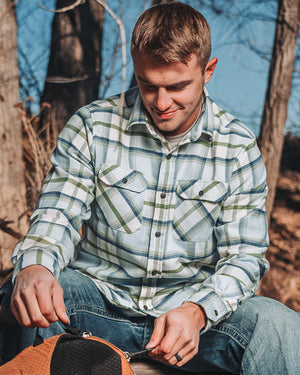
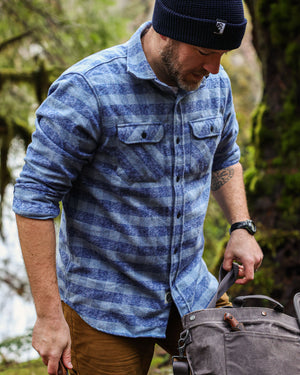
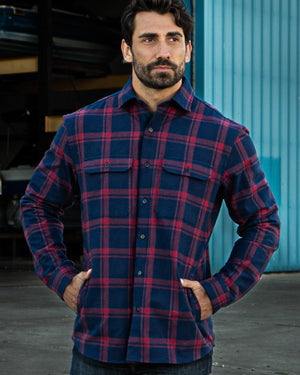
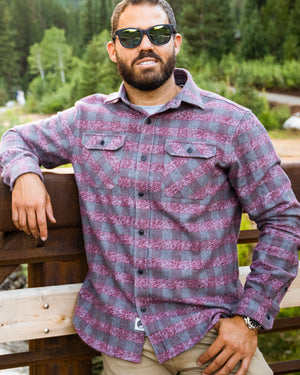
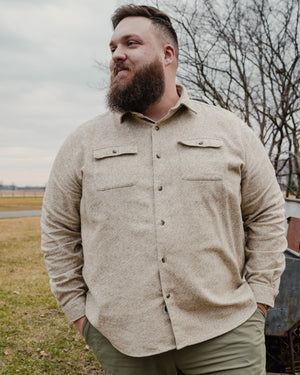
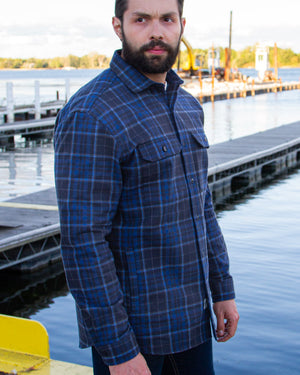
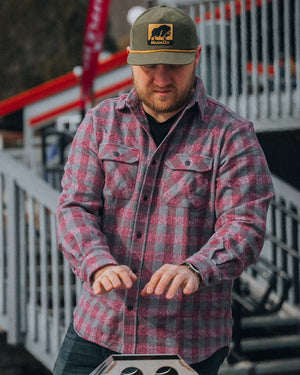

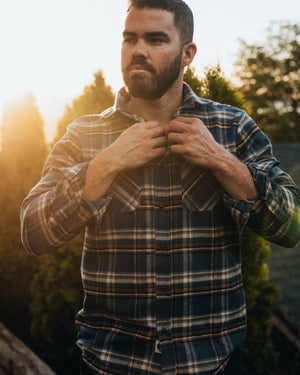
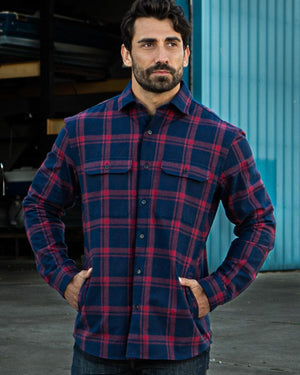
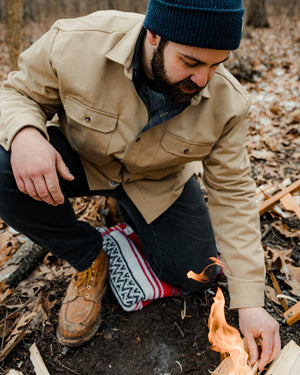
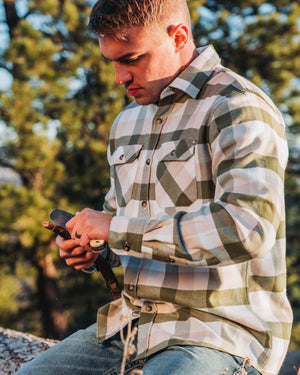
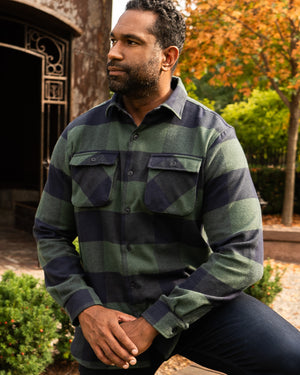


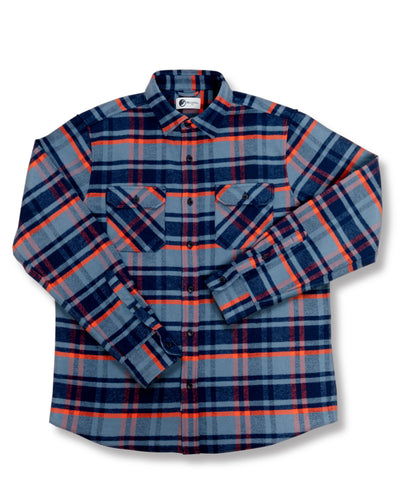

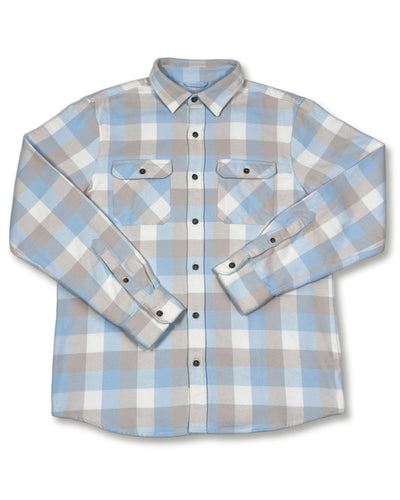
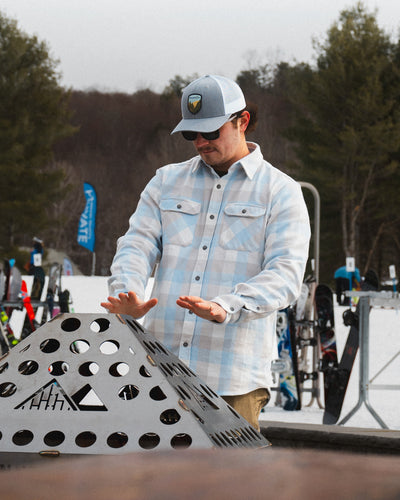
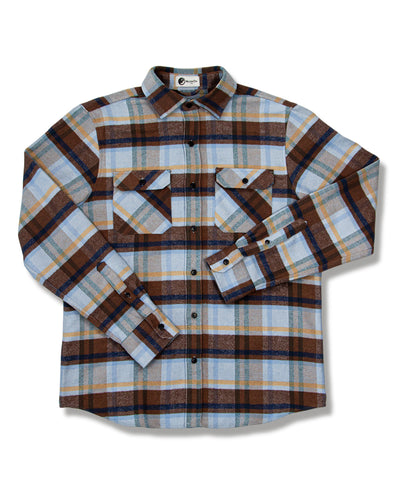
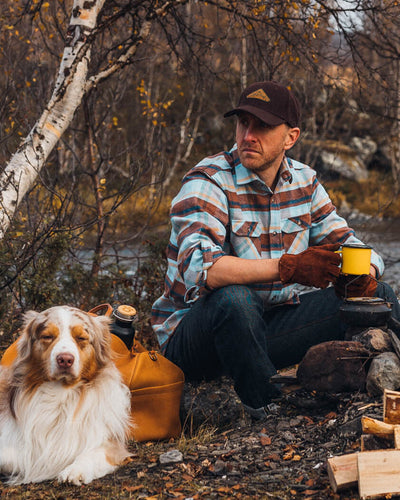
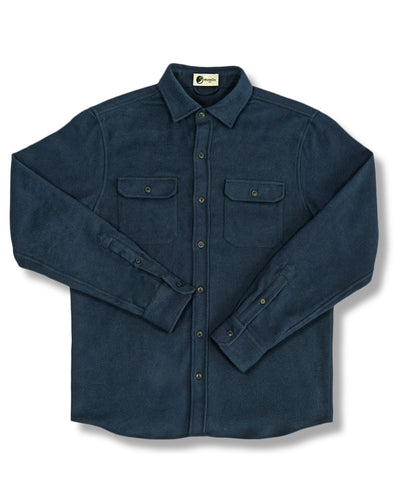
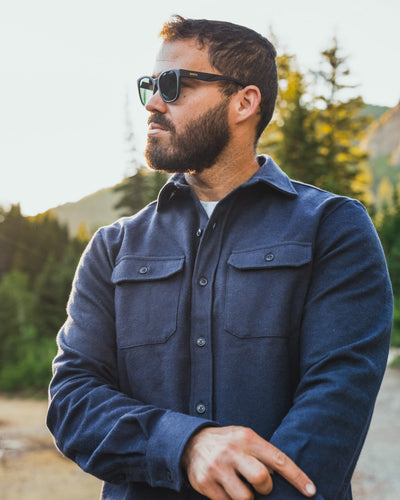



Leave a comment